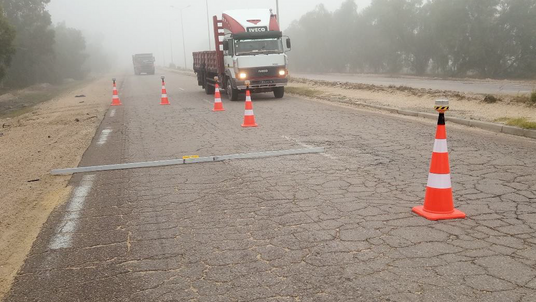
Performance-Related Specifications for Hot Asphalt Mixes | PRiSMA

Cooperating countries: Austria and Tunisia
Coordinating institution: Technical University of Vienna
Partner institutions: Univeristy Tunis el Manar (UTM), National School of Engineers of Tunis (ENIT)
Project duration: 1 September 2021 - 30 August 2024
Budget: € 49.350,00
Project summary
Pavement construction, maintenance, and rehabilitation is a crucial component of the huge public investments worldwide. The wearing surface of a pavement is usually constructed using Hot Mix Asphalt (HMA), and represents the most cost-sensitive layer. Pavement design is performed by consultants hired during the design phase of any project. However, HMA formulation is designed by contractors engaged during the project construction. This separation through the project life cycle may cause a gap between the materials properties set during the design phase and those obtained during the construction phase. This gap usually results in unsatisfactory performance for HMA causing premature failures such as rutting, cracking, and ultimately potholes and limits the lifetime of road infrastructure significantly. Performance-Related Specifications (PRS) for HMA could overcome this gap.
PRS for HMA is a set of quality acceptance criteria for this material. PRS must be achieved using available materials in the market and current construction technologies. This concept has been implemented in several developed countries such as Austria. The proposed research cooperation project is an important milestone to promote and prepare the implementation of such a great added value concept to the road construction industry in Tunisia. This project is building new links of knowledge and science between Austria and Tunisia through the cooperation between University of Tunis el Manar (UTM) and the Technical University of Vienna (TU Wien). The project is involving Eng. Taha Ben Dhia and Professor Amara Loulizi on the Tunisian side and Professor Bernhard Hofko, Mrs Ingrid Camarago and Dr. Johnnas Mirwald on the Austrian side. Through mobility and knowledge exchange this project aims at preparing the ground in Tunisia for more efficient material assessment in road engineering, which will ensure that tax money is spent in an efficient and economical way. For Austria, this new partnership increases the knowledge on PRS on local material sources that are not available in Central and Western Europe and opens possibilities for further research cooperation in the future in this region.
Contribution to Sustainable Development
This project aimed at improving the HMA production in Tunisia as well as increasing the number of researchers in the field of road construction. So, it contributes to Goal 9 under target 9.5:
“Enhance scientific research, upgrade the technological capabilities of industrial sectors in all countries, in particular developing countries, including, by 2030, encouraging innovation and substantially increasing the number of research and development workers per 1 million people and public and private research and development spending.”
The improvement of HMA production in Tunisia aims to extend the sustainability and enhance the safety of roads in this country. Thus, the project enrolls Goal 11 under target 11.2:
“By 2030, provide access to safe, affordable, accessible and sustainable transport systems for all, improving road safety, notably by expanding public transport, with special attention to the needs of those in vulnerable situations, women, children, persons with disabilities and older persons”.
The cooperation project between the involved institutions is by definition included in Goal 17 under target 17.7:
“Promote the development, transfer, dissemination and diffusion of environmentally sound technologies to developing countries on favorable terms, including on concessional and preferential terms, as mutually agreed”.
